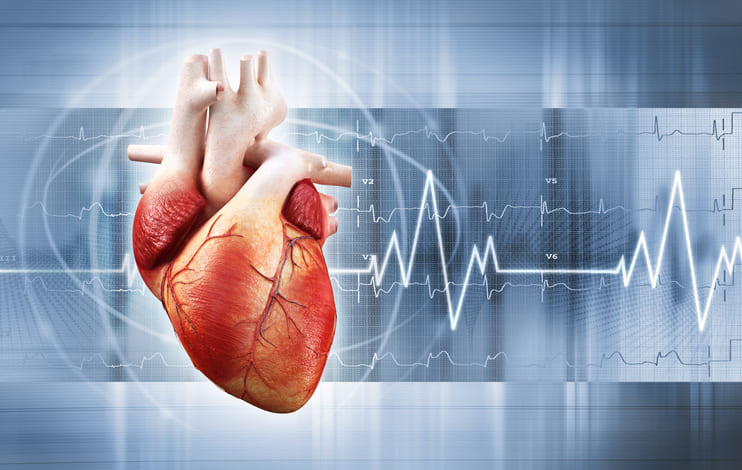
Could a simple cup of cocoa protect the body from the cardiovascular events associated with mental stress, including thrombosis, heart disease, and stroke? The answer, according to results from a recent study, is “yes.”
Flavanols may help counteract mental stress-induced endothelial dysfunction and thereby improve peripheral blood flow and protect vascular health in times of stress, according to researchers from the University of Birmingham, U.K., who published their findings on the effects of cocoa flavanols on stress-induced changes in vascular function in Nutrients.
Researchers, led by Catarina Rendeiro, MSc, PhD, of the University of Birmingham’s School of Sport, Exercise and Rehabilitation Sciences in the U.K., explained the link between mental stress and endothelial function:
“Mental stress induces immediate increases in heart rate and blood pressure (BP) in healthy adults and this is accompanied by peripheral arterial vasodilation, as measured by forearm blood flow (FBF). In addition to acute responses to stress, studies show that mental stress can lead to post-stress impairments in vascular function. Specifically, transient declines in endothelial function (measured by brachial flow-mediated dilatation; FMD) occur from 15 to 90 min after stress in healthy young adults, in older adults, postmenopausal women with diabetes and depression, and populations with high cholesterol and metabolic syndrome. Importantly, reductions in FMD observed following mental stress (1%–3% FMD) can be considered significant in the context of future cardiovascular risk, with 1% FMD reduction leading to a 13% increase in cardiovascular risk.”
Flavanols are naturally occurring compounds found in most fruits and vegetables, as well as in cocoa. A growing number of studies have shown that high intakes of flavonoids — the larger group of compounds that flavanols belong to — are associated with lower cardiovascular disease-related mortality.
“In particular, flavanols, a sub-group of flavonoids that can be found in cocoa, berries, grapes, apples, and tea, improve human endothelial function (brachial FMD) within 1–3 h of intake. Acute effects of flavanols on endothelial function have been shown to translate into chronic benefits in FMD, as well as arteriolar and microvascular vasodilator capacity and BP. Circulating flavanol metabolites, particularly (−)-epicatechin-derived, are believed to drive the beneficial effects of cocoa flavanols on the endothelium by increasing NO bioavailability, and reducing ET-1. Therefore, foods rich in flavanols have the potential to be effective as a dietary strategy to counteract the deleterious impact of mental stress on vascular function,” researchers explained.
The effects of flavanols on the body during stress, however, are unknown. Thus, Rendeiro and colleagues conducted this randomized, double-blind, cross-over, controlled study to assess the effects of a high-flavanol cocoa beverage drunk 90 minutes before completion of an 8-minute mental stress test.
In all, 30 healthy men (mean age: 23 years, mean BMI 23.66; mean FMD: 5.20%) drank a cocoa beverage that was flavanol-enriched to levels of 150 mg of epicatechin and 681.4 mg total flavanols per serving 1.5 hours before an 8-minute mental stress task. A comparison group of men was given the same stress test, along with a low-flavanol beverage that contained less than 4 mg epicatechin and 4.1 mg of total flavanols per serving.
The mental stress test was the 8-minute Paced-Auditory-Serial-Addition-Task (PASAT) shown to induce a physiological stress response. Researchers measured forearm blood flow (FBF), blood pressures, and cardiovascular activity both pre- and post-intervention, and at rest and during stress. Brachial FMD was measured to assess endothelial function, as was brachial BP, both before the intervention and again at 30- and 90-minutes post-stress.
Rendeiro and colleagues found that although FMD was impaired at 30-minutes post-stress, the high-flavanol cocoa attenuated this decline, and FMD stayed significantly higher in these men compared with men who drank low-flavanol cocoa at 90-minutes post-stress. They recorded significantly higher FMDs in men drinking the high-flavanol cocoa compared with low-flavanol coca at 30 minutes (5.75% vs 3.86%, respectively; P˂0.001) and at 90 minutes post-stress (5.38% vs 4.66%; P=0.026).
Arterial diameters were significantly greater at 30 minutes after the stress intervention in men consuming high-flavanol cocoa compared with the low-flavanol drink (0.07 vs 0.30 mm, respectively; P=0.06), and at 90 minutes (0.11 vs 0.33 mm; P=0.001) after the stress test compared with pre-intervention baseline. Retrograde blood flow was significantly greater at 30 minutes post-stress compared with 90 minutes (at +7.95 cm3/min in the high-flavanol group compared with +7.69 cm3/min in the low-flavanol group; P=0.032), but between-group differences did not reach significance.
High-flavanol cocoa also increased FBF at rest compared with the low-flavanol group (0.34% compared to −0.38%, respectively; P<0.001) and during stress (1.46% compared to 0.26%; P=0.002). Stress-induced cardiovascular and BP responses were similar in both groups. Men who drank high-flavanol cocoa had a significantly greater FBF (P=0.001) and forearm vascular conductance (P=0.001) compared with those drinking low-flavanol cocoa.
“The present study shows that cocoa flavanols prevented the decline in brachial FMD 30 min post-stress, and FMD remained significantly higher following high-flavanol cocoa compared to low-flavanol cocoa 90 min post-stress. Furthermore, high-flavanol cocoa increased FBF at rest and during stress in comparison to low-flavanol cocoa,” wrote Rendeiro et al.
“Importantly, the findings reported in this study have relevance for everyday diet, given that the daily flavanols dosage administered could be achieved through the consumption of a variety of foods rich in flavanols, particularly apples, black grapes, blackberries, cherries, raspberries, pears, pulses, green tea, unprocessed cocoa, and red wine. Finally, these findings can have important implications for the future use of dietary strategies containing plant-derived flavanols to protect the vasculature during periods of increased stress or in populations that are more vulnerable to the effects of mental stress,” they concluded.
Study limitations include the exclusion of women, the small cohort, restriction of polyphenol intake for only 24 hours before study visits, and the need to study these effects in individuals who are a higher risk of cardiovascular disease or mental stress.
-
Flavanols may be effective at counteracting mental stress-induced endothelial dysfunction and improving peripheral blood flow during stress.
-
The use of flavanol-rich dietary ingredients may be a viable strategy to protect vascular health during stress.
Liz Meszaros, Deputy Managing Editor, BreakingMED™
This study was funded by the College of Life and Environmental Sciences, University of Birmingham.
Rendeiro and colleagues reported no conflicts of interest.
Cat ID: 102
Topic ID: 74,102,730,102,914,142,192,94,925


